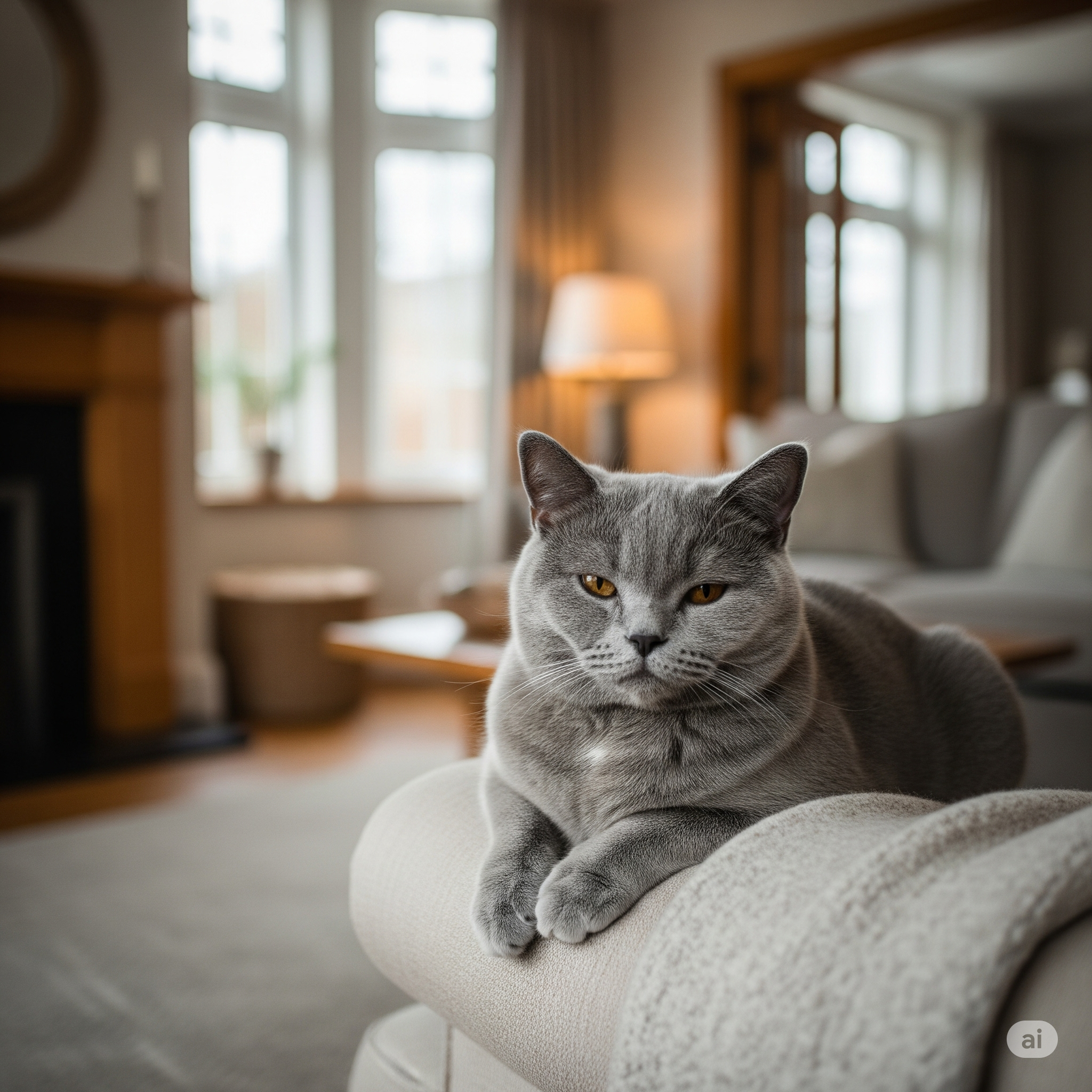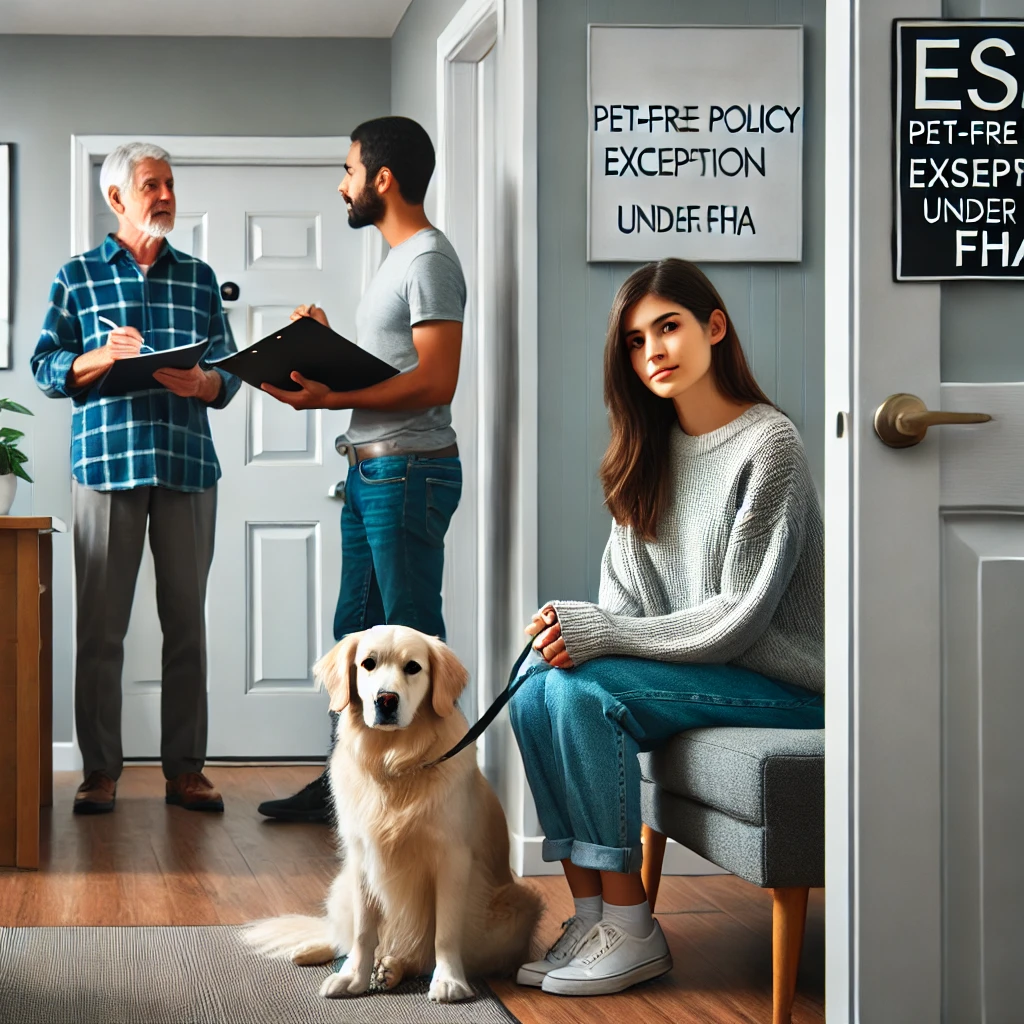In the diverse world of Emotional Support Animals (ESAs), few cats possess the stoic, profoundly comforting, and unwavering loyalty found in the British Shorthair. With their distinctively round faces, luxuriously plush coats, and inherently calm personalities, these regal felines bring an undeniable sense of peace and steadfast companionship to those gracefully navigating anxiety, depression, PTSD, or other emotional challenges. Whether you reside in a compact apartment or a bustling family home, a British Shorthair offers quiet, consistent support and a comforting, steady presence.
In this comprehensive post, we’ll thoroughly explore the compelling reasons why British Shorthairs are ideally suited as ESAs, delve into how they contribute to improved mental health, outline their specific care needs, and crucially, explain how CertifyESA can efficiently help you obtain a legitimate ESA letter to secure vital housing rights for your cherished feline companion.
About the British Shorthair Breed
The British Shorthair stands as one of the oldest and most historically significant cat breeds, celebrated globally for its dense, plush fur and iconic round, expressive eyes. With origins tracing back to Roman times and achieving widespread popularity in Victorian England, the breed is universally revered for its dignified charm and its unique blend of independent yet deeply affectionate nature.
Breed Characteristics:
- Weight: Medium to large (typically 7–17 lbs, males larger than females).
- Coat: Incredibly dense and plush, short-haired; feels like a thick carpet.
- Lifespan: Impressive 12–20 years, often living well into their late teens.
- Personality: Predominantly calm, independent, loyal, and quietly affectionate.
- Grooming Needs: Moderate (regular brushing required due to coat density).
- Activity Level: Low to moderate; enjoys lounging but also gentle play.
British Shorthairs are not overly vocal or demanding of constant attention. Instead, they typically prefer to remain peacefully nearby, offering quiet companionship and subtle affection without overwhelming interaction—making them an ideal choice for individuals dealing with emotional or psychological conditions who may prefer a less “needy” companion.
Why British Shorthair Cats Make Excellent Emotional Support Animals
- Calm and Steady TemperamentThe British Shorthair is universally known for being calm, patient, and remarkably composed. They are not easily startled or prone to hyperactivity, which makes them an incredibly comforting and predictable presence during times of emotional distress or heightened anxiety. Their naturally tranquil demeanor significantly helps to cultivate a serene and peaceful home environment.
- Independent Yet AffectionateWhile they may not be stereotypical “lap cats” that demand constant physical contact, British Shorthairs genuinely enjoy being close to their owners. Their inherent loyalty and consistent, steady companionship provide a profound sense of security and emotional grounding without overwhelming interaction—making them particularly ideal for those with social anxiety or sensory sensitivities who prefer a less intrusive presence.
- Quiet Supportive PresenceBritish Shorthairs are typically quiet and wonderfully unobtrusive. Their low-key presence, characterized by minimal vocalizations, can be particularly helpful for individuals who prioritize peace and quiet but still desire an animal nearby to help them navigate difficult emotional moments or periods of stress.
- Routine-OrientedThese intelligent cats genuinely thrive on consistency and predictable daily routines. Their inherently predictable behavior can be deeply reassuring for individuals struggling with anxiety or depression, offering a powerful sense of stability and normalcy in what might otherwise feel like a chaotic or unpredictable world.
- Strong Human BondingBritish Shorthairs form deep, unwavering, and incredibly loyal bonds with their humans. While they might not constantly demand attention, they are remarkably emotionally attuned to your presence and feelings, quietly offering subtle but profound support simply by being nearby and observant.
Mental Health Benefits of a British Shorthair ESA
- Emotional StabilityThe unchanging and inherently calm nature of a British Shorthair can significantly help individuals manage emotional highs and lows. Their consistent steadiness brings a much-needed sense of control and peace, which is essential for those living with mood disorders, chronic anxiety, or the lingering effects of PTSD.
- Encouragement of Daily RoutineThe daily tasks involved in feeding, grooming, and generally caring for a British Shorthair necessitate consistency, which in turn helps establish and maintain vital daily structure. This routine is incredibly beneficial for individuals coping with depression, where motivation and effective time management can often be significant challenges.
- Sensory SoothingThe plush, incredibly thick coat of the British Shorthair provides a rich tactile comfort for those who naturally self-soothe through petting or touch. Combined with their soft, rhythmic purring and overall calm demeanor, they offer a truly multisensory experience of relaxation and tranquility during stressful times.
- Reduced Feelings of LonelinessBritish Shorthairs are the perfect companions for those who live alone or frequently experience feelings of emotional isolation. While they may not be overly clingy, their loyal and consistent companionship fills the emotional void many people experience during significant mental health struggles, offering a constant, comforting presence.
British Shorthairs and Apartment Living
British Shorthairs are exceptionally apartment-friendly due to their inherently calm, quiet nature and notably lower activity needs compared to many other breeds. They are perfectly content with lounging peacefully in a sunbeam, sitting calmly beside you during the day, or quietly watching the world go by from a cozy windowsill.
They also rarely meow excessively or engage in hyperactive, destructive behaviors, making them ideal companions for quiet households or shared living environments where noise and disruption are undesirable.
With an official ESA letter, you can legally live with your British Shorthair in housing that normally restricts pets—thanks to the robust protections provided under the Fair Housing Act, ensuring your right to have your support animal by your side.
Caring for a British Shorthair ESA
While British Shorthairs are generally low-maintenance in terms of high-energy demands, they do have specific care aspects crucial for their well-being and continued role as an ESA:
- Grooming Needs:Although British Shorthairs possess short fur, their exceptionally dense double coat requires regular brushing—typically once or twice a week—to effectively reduce shedding, prevent matting, and minimize hairballs. During seasonal changes (shedding periods), grooming may be needed more frequently.
- Diet and Exercise:British Shorthairs have a natural tendency to gain weight, so a healthy, carefully portion-controlled diet and moderate daily play are absolutely essential for maintaining their ideal body condition. Utilize interactive toys and puzzle feeders to keep them mentally stimulated while simultaneously encouraging gentle movement and activity.
- Health Considerations:These cats are generally robust and healthy, but they may be predisposed to certain genetic conditions, such as hypertrophic cardiomyopathy (HCM), a common heart condition in felines. Regular veterinary checkups, including screenings, are crucially important, especially as they mature into adulthood and old age.
- Emotional Engagement:British Shorthairs genuinely enjoy quiet companionship and subtle interaction. While they don’t demand constant vigorous play, they significantly benefit from gentle affection, quiet interactive toys, and being included in your daily life—such as sitting peacefully beside you while you work, nap, or simply relax.
Do You Need an ESA Letter for Your British Shorthair?
If you wish to live with your Emotional Support Animal in a residence that has pet restrictions, you’ll unequivocally need a valid ESA letter from a licensed mental health professional. An ESA letter serves as official documentation of your legitimate need for an emotional support animal as an integral part of your ongoing treatment plan for a recognized emotional or psychological condition.
With a valid ESA letter, you gain crucial legal protections, including:
- The fundamental right to live with your ESA in rental properties with “no-pet” policies.
- The ability to waive pet-related fees or deposits that would otherwise apply to other residents.
- Federal housing protection under the Fair Housing Act, preventing discrimination.
- The right to keep your British Shorthair even if your landlord’s typical policies do not allow animals.
It is important to emphasize that your British Shorthair does not need any specialized training to qualify as an ESA. Their inherent therapeutic presence and your mental health provider’s professional recommendation are what legally classify them as such.
How CertifyESA Makes the ESA Letter Process Easy
CertifyESA offers a trusted, convenient, and secure way to connect with a licensed mental health professional who can expertly evaluate your need for an emotional support animal and provide a legitimate, legally compliant ESA letter.
Why choose CertifyESA?
- Streamlined Online Process: Conduct your entire evaluation conveniently online—no in-person appointments required.
- Fast Turnaround: Receive your digital ESA letter in as little as 24–48 hours if approved.
- Full Compliance: All ESA letters are crafted to be fully compliant with federal and relevant state laws.
- Transparent Pricing: You only pay if your application is approved, with no hidden fees or recurring subscriptions.
- No Unnecessary Gimmicks: We focus solely on providing what the law truly requires for a valid ESA letter, avoiding misleading “animal registration” schemes.
- Supportive Team: Benefit from a knowledgeable and empathetic customer support team experienced in ESA housing cases.
With CertifyESA, you can confidently advocate for your rights and live peacefully with your British Shorthair cat—stress-free and legally protected.
Is a British Shorthair ESA Right for You?
A British Shorthair might be the perfect emotional support animal for you if you:
- Prefer a calm, quiet, and relatively independent cat that still offers affection.
- Live in a small or shared living space where their serene temperament is ideal.
- Value deep emotional connection without clinginess or high demands.
- Need gentle help managing anxiety, depression, PTSD, or emotional instability.
- Benefit significantly from structured routines and steady, consistent companionship.
- Desire an elegant, relatively low-maintenance feline with subtle emotional intuition.
If high-energy pets tend to overwhelm you, or you simply need a consistent, steady presence rather than a constant cuddle buddy, the British Shorthair is truly an ideal ESA breed perfectly suited for your lifestyle and emotional needs.
Conclusion
British Shorthair cats offer a truly unique blend of quiet loyalty, profound emotional steadiness, and low-maintenance companionship—traits that collectively make them exceptional Emotional Support Animals. Whether you’re navigating the daily challenges of anxiety, depression, PTSD, or emotional trauma, the soft, grounding presence of a British Shorthair can bring a much-needed sense of calm, connection, and beneficial routine into your life.
If you’re considering making your British Shorthair an official ESA or are looking to adopt one with emotional support in mind, the vital next step is securing a legitimate ESA letter through CertifyESA.com. With your ESA letter confidently in hand, you can truly enjoy the peace of mind of knowing your beloved feline companion is fully protected under federal housing laws and that your emotional needs are comprehensively supported.





